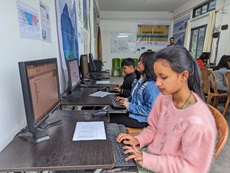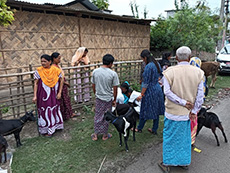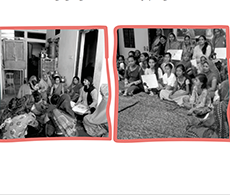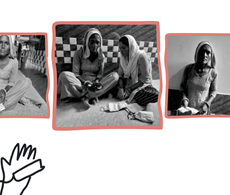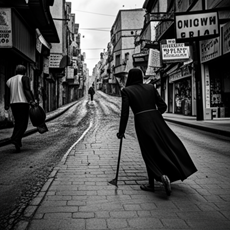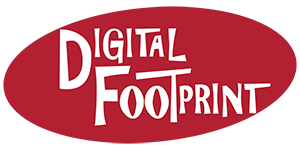
May, 2024

Cover Story
Digital Empowerment Foundation started its journey in 2002, a time when technology and digital was in the hands of the few privileged, literally 1.5% of the population in the country. Back then the mission was to connect the unconnected and empower communities at the edge of information. In 2024, India’s internet penetration rate stands at 52.4% of the total population and empowering people in the age of information has become more important than ever. Read more
Digital Op-Ed
There is a considerable difference in the consumption of digital information between rural and urban India. The access to the digital world is limited, in the case of rural India, by the digital divide. As per a study by the Internet and Mobile Association of India, only 29% of rural India can access the internet, compared to 64% of the urban population. The latest National Sample Survey Office (NSSO) data place this figure at 24% for rural Indian households. Moreover, only 14% of rural citizens “actively use the internet, in contrast to 59% of urban adoption.” The report cites affordability issues, patchy network coverage, and a lack of localised vernacular internet content as possible reasons for this disparity.
Read more
Stories from the Ground
Access and Infrastructure
This piece narrates my journey from being a resident of the Ziro Valley to a source of information and knowledge for my people. The opportunity given to me by Digital Empowerment Foundation, was a game changer for my professional life. I am Nani Monya, working in a community network initiative in Ziro valley, Arunachal Pradesh. I belong to the Apatani tribe which is an Indigenous community. We are an ethnic tribe and we are also known and called as Tanw or Tanii or Apa Tani. Read more
Education and Empowerment
Once confined to the roles of a traditional housewife in a small village, Sunita’s aspirations soared beyond the boundaries of her home. Married to a grocer with two young children, Sunita’s household faced financial struggles, prompting her desire to contribute to their livelihood. Her opportunity for change came when she encountered a digital center operated by an Infopreneur... Read more
In an endeavour to create sustainable models to support the rural business ecosystem, the involvement of stakeholders in the process is considered to be one of the most important steps under the Udyamini Program. Our SoochnaPreneur Business Mitra Centers are working towards establishing themselves as a central point of contact to bring all stakeholders together to support the Rural Women Entrepreneurs involved in various value chains in Assam and West Bengal under the Udyamini Program. Read more
In the heart of Ziro, a small town filled with big dreams, a remarkable tale of empowerment unfolds. Kuru Sunya and her son Kuru Horchi, a dynamic duo are defying stereotypes and embracing the power of education. Their journey began at Digital Empowerment Foundation, ZIRO Valley CIRC offering computer training. Despite the challenges of daily life, Kuru Sunya, a dedicated homemaker, and part-time farmer, seized the opportunity to expand her horizons. Read more
Priya, a 28-year-old housewife and mother of three from Mettupatti village in Salem, had long harbored a passion to learn something new and earn an income on her own. Despite only having completed her 12th standard education, Priya’s desire for self-sufficiency and personal growth was always strong. However, she faced challenges in taking steps toward independence. Priya’s journey took a transformative turn when she learned about the DiGI project in her village. Read more
Governance and Citizen Services
Shani Bai, a 59-year-old resident of Gram Panchayat Bhagwanpura, Neemuch (Madhya Pradesh), recently shared her experience regarding the accessibility and convenience provided by the DEF Soochna Adhikar Kendra in her village. Before utilizing the services offered by the DEF Soochna Adhikar Kendra, Shani Bai faced significant challenges in completing her old-age pension KYC. Read more
Dolly Saini from the village of Geen in Uttarakhand would struggle to get administrative work done. She wasn’t aware about the government benefits that she was entitled to and even the schemes that she knew of, she didn’t know how to apply for them. Radhika who is from the same village recently started a SoochnaPreneur centre. This centre has become the go-to place for all the residents of her village to get access to digital services and government entitlements. Read more
Health & Awareness
Meena is a woman breaking down gender norms and restrictive gender roles, and fostering change within her community. She has been working with Digital Empowerment Foundation for the past three years, and has participated in many programs that are run by the organisation in her community/village. These programs have made her a known face in her village, earning the trust and respect of the community members, and this trust played an instrumental role in the implementation of a complex program like Digital Didi in her community. Read more
In the village of Batesra in Alwar, Rajasthan, resides Sapita with her parents-in-law, husband and three children. Belonging to a modest family, she is heavily reliant on her husband’s income that comes through working on the hills. Despite financial constraints, Poonam ji, who is a Digital Didi, came to her home committed to dispelling myths and transforming traditional practices surrounding menstruation. Read more
Research and Advocacy
2023 was not the greatest year as far as digital or democratic rights are concerned. But before we get to those bits, let us look at some of the more welcoming news. As India hosted the G20 conference in Delhi, one of the several highlights was India's Digital Public Infrastructure. As part of the New Delhi Declaration, it was recognised that digital public infrastructure, including technology that India has developed, would play a significant role in accelerating the international attempt towards the Sustainable Development Goals. Read more
Palestinian journalists and people have used social media to share information about the on-going genocide directly from the field, to gather support, and to gain control of the narrative. Social media has allowed the general public to witness the humanitarian crisis from the source without the information being mediated and filtered through media channels. As many countries bar Pro-palestine protests, people have turned to social media to show their support by creating awareness, fundraising, sponsoring e-sims, and more. As social media becomes our only hope to find out the truth about what’s happening in Palestine and offer support, we are forced to confront the myth that social media is a haven for free speech. Read more
In December 2023, Rishi Sunak, once again, made headlines for a bold and controversial policy proposition which seeks to ban social media usage for those under 16 citing mental health and well-being reasons. Shortly after the statement, Sunak was deeply criticised for the proposition and an article published in The Guardian went as far as calling the plan ‘silly.’ Since then, three months have passed, however, no further development has been observed on that front. In response, Gary Alexander Neville, the English football pundit and former player tweeted “Rishi Sunak is looking to ban kids from social media until they’re 16. It’s not enforceable and it’s not realistic at all. Why do they always take the shortcut? Read more
Oral Bytes
Expert Says
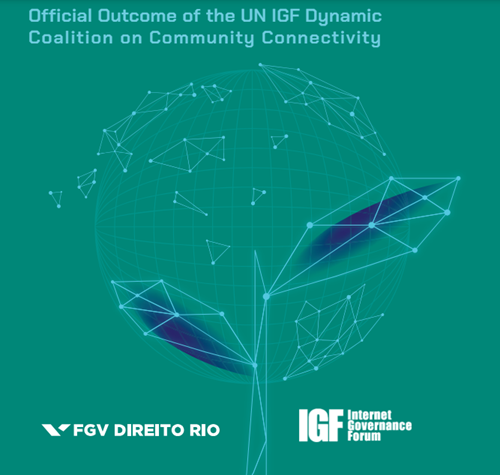
This chapter introduces a previously absent but crucial viewpoint in the discourse surrounding community networks: their function as catalysts for commons-based notion of digital sovereignty and environmental sustainability. The chapter highlights the relevance of the community network movements not only as an engine for the expansion of connectivity but also as a vector of community empowerment, self-determination, and, ultimately, digital sovereignty, fostering the capacity of previously unconnected communities to understand and develop digital technology. Read more
eChampion
I run a Smartpur digital center in Ghazipur which provides services to the community across the pillars of government entitlements, financial literacy, digital literacy, support in financial inclusion and tele-health consultation. As an individual who has been deprived of standard education, I always envisioned a dream where I can be a stepping stone for the quality education of deprived students. The dream was to open a library for children. Read more
